

Global Citizenship blog
 When the London 2012 Mascots were launched on 19 May 2010, a competition was announced for schools to win a visit from either Wenlock (the Olympic mascot) or Mandeville (the Paralympic mascot). Lasswade High School in Midlothian was the Scottish winner and on 29th June received a visit from Mandeville.
When the London 2012 Mascots were launched on 19 May 2010, a competition was announced for schools to win a visit from either Wenlock (the Olympic mascot) or Mandeville (the Paralympic mascot). Lasswade High School in Midlothian was the Scottish winner and on 29th June received a visit from Mandeville.
S1 pupils together with P7 pupils from Lasswade’s associate primaries came together to take part in an assembly about the Olympic and Paralympic Values. Former pupil Sean Fraser, who won a swimming bronze medal in the Beijing Paralympics, gave an inspiring talk about his experience of the 2008 Games. Then, after hearing the story of Wenlock and Mandeville, the pupils were surprised and delighted when Mandeville entered the hall. The assembly finished with a display of Judo skills to demonstrate the Olympic value of respect and the presentation of certificates to pupils who have recently demonstrated the Olympic values in their learning.
George Falconer, Principal Teacher of Physical Education, described the school’s approach to using the London Olympics as a context for learning. “We have used some Olympic sports as an avenue for delivering the values of respect, friendship and excellence. We encourage pupils to think about the values not just in terms of sport but how they might apply them to school and home life. If they can be inspired to do their absolute best in all sports and find something they excel at, they can then transfer this to their academic life.”
Lasswade is a member of the London 2012 Get Set Network and is participating in ‘International Inspiration’, a project which links them with a school in South Africa. All schools in the UK are encouraged to join the Get Set Network and use the activities, ideas and free resources available including interactive games and inspirational videos.
Learning and Teaching Scotland is promoting Scottish school engagement with the London Olympics, which some schools are using already as a context for learning about global citizenship and other curricular areas.
More The winners of the annual ‘Scottish Education Awards’ were announced today. The Awards ceremony in Glasgow brought together hundreds of pupils and teachers from schools which were finalists in the scheme, for a celebratory event to recognise their achievements.
The winners of the annual ‘Scottish Education Awards’ were announced today. The Awards ceremony in Glasgow brought together hundreds of pupils and teachers from schools which were finalists in the scheme, for a celebratory event to recognise their achievements.
Among the winners, the ‘Global Citizenship’ award went to St.Stephen’s Primary School in Glasgow, and the ‘Sustainable Schools’ award was won by Lawthorn Primary School in Irvine, North Ayrshire. A North Ayrshire Council news release tells more about Lawthorn’s work.
A Scottish Government news release has a full list of the winners and categories. Congratulations to all the schools which participated this year.
More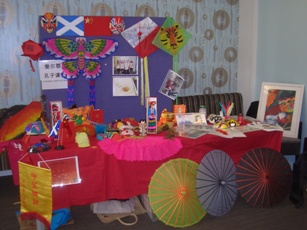 A group of Education professionals from Tianjin in China is visiting Scotland this week, furthering the partnerships between Tianjin schools and Scottish secondary schools developed through the Confucius Classrooms programme managed by Learning and Teaching Scotland.
A group of Education professionals from Tianjin in China is visiting Scotland this week, furthering the partnerships between Tianjin schools and Scottish secondary schools developed through the Confucius Classrooms programme managed by Learning and Teaching Scotland.
Yesterday a LTS national China showcase event attracted around 200 staff and students to Stirling to enjoy performances and demonstrations of Scottish classroom activity related to Chinese culture and language. Each of the Confucius Classroom regional hubs in Scotland also displayed material and shared their experience of curricular work.
An article in The Herald ‘Let young Scots learn Mandarin, Confucius says’ reports on the visit and the importance of international partnership working in Education.
A LTS press release gives background details.
More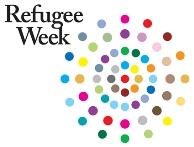 This is ‘Refugee Week’ in the UK, a celebration of the contributions that refugees make to life in Britain and a support for community cohesion. This year’s programme of events and activities uses the theme ‘simple acts’ to encourage people to do small everyday actions which help change public perceptions about refugees.
This is ‘Refugee Week’ in the UK, a celebration of the contributions that refugees make to life in Britain and a support for community cohesion. This year’s programme of events and activities uses the theme ‘simple acts’ to encourage people to do small everyday actions which help change public perceptions about refugees.
Local groups and schools can organise activities to celebrate Refugee Week and stimulate discussion about issues such as discrimination and rights. The Teachers TV website has several new documentary videos about the experience of children in English schools, such as ‘Refugees in the UK’, which could act as prompts for discussion.
More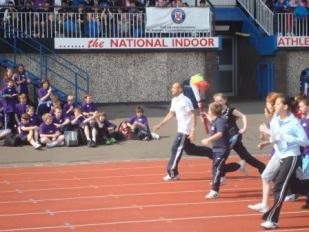 On 4th June Falkirk Council held its mini Commonwealth Games at Grangemouth Stadium. All 1800 Primary 7 pupils in the Falkirk area take part in this transition event, with each class group given a country to represent. This event takes place every two years to coincide with either the Commonwealth Games or the Olympics, so the 2010 event mirrors the Commonwealth Games to be held in October in Delhi, India.
On 4th June Falkirk Council held its mini Commonwealth Games at Grangemouth Stadium. All 1800 Primary 7 pupils in the Falkirk area take part in this transition event, with each class group given a country to represent. This event takes place every two years to coincide with either the Commonwealth Games or the Olympics, so the 2010 event mirrors the Commonwealth Games to be held in October in Delhi, India.
Each class joined the opening ceremony with a procession around the track carrying flags and banners representing their school and allocated country. A torch relay featured pupils running around the stadium track alongside international athletes from a variety of sports. The final leg of the relay was run by Commonwealth gymnastics gold medallist Steve Frew, currently assisting the Youth Sports Trust to promote active participation in sport. Steve, who was born and brought up close to Grangemouth Stadium, thrilled pupils with a series of handsprings and backflips as he completed his lap.
Pupils then moved into mixed school groups to take part in a chosen sport for the day. These included a range of athletic activities, hockey, football, rugby, basketball, swimming, tennis, cheerleading and even Boccia, an official Olympic and Commonwealth para-sport something like French boules. This enabled the participation of pupils with additional support needs, as part of the Council’s inclusion policy.
This event was part of a whole-authority approach to transition from Primary to Secondary school and also a means of embedding Health and Wellbeing and Global Citizenship in the implementation of Curriculum for Excellence. As part of the preparation, all schools were provided with a CfE planner offering them a range of resources and ideas for building on pupils learning. This encouraged pupils to learn about Commonwealth values, about their chosen country, about the importance of a healthy lifestyle and participation in physical activity. It made learning relevant, challenging, and fun.
More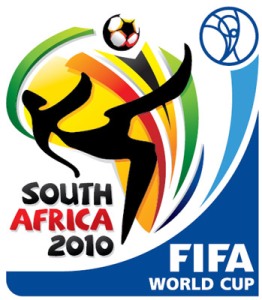 The start of the Fifa football World Cup 2010 is now only a few days away, and new educational resources and activities continue to appear online.
The start of the Fifa football World Cup 2010 is now only a few days away, and new educational resources and activities continue to appear online.
Among my favourites from the new material is the Teachers TV video programme ‘Rainbow Nation 2010′. This short documentary focuses on the history and people of South Africa, the host nation, in the period of build-up towards the competition finals. Another programme ‘Cape Talent’ presents interviews and profiles of a number of South African citizens excited about the forthcoming tournament, including Bishop Desmond Tutu.
Another excellent production is the Oxfam resource ‘Bring on the world’, a sequence of activities for pupils aged 9-11 on themes of world cup football and world trade.
This blog post supplements my earlier post ‘World Cup football’. Now its almost time to take a few personal hours to watch some of the fine football skills displayed on TV for the benefit of a worldwide audience. Enjoy. I know I shall.
More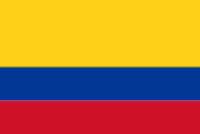 Pupils from two Scottish secondary schools are visiting Colombia to see and hear first-hand about the societal and environmental impacts of the illegal Drugs trade. Citizens in both countries suffer from the effects of drugs such as cocaine, and anti-drugs campaigns are important to change behaviour. The students and their Headteachers were invited by the Vice President to make the visit, in recognition of their work on a schools project ‘Shared Responsibility’ led by the Scottish Crime and Drug Enforcement Agency.
Pupils from two Scottish secondary schools are visiting Colombia to see and hear first-hand about the societal and environmental impacts of the illegal Drugs trade. Citizens in both countries suffer from the effects of drugs such as cocaine, and anti-drugs campaigns are important to change behaviour. The students and their Headteachers were invited by the Vice President to make the visit, in recognition of their work on a schools project ‘Shared Responsibility’ led by the Scottish Crime and Drug Enforcement Agency.
Girvan Academy in South Ayrshire has been involved in this work with the SCDEA for several years. A news release gives background and more detail about the things the visitors will experience, such as finding out more about cocaine production, alternative crops and drugs misuse at the community level.
Portobello High School in Edinburgh has joined the project, and a BBC news story reports on their involvement.
MoreLast week the annual official Eurovision Song Contest took place in Oslo. But for those of us involved in Education, online school-focused events offered a great opportunity for young people to learn more about the culture of other countries and show off their own performance skills.
The ‘Eurodance 2010′ project brought together 26 schools in Scotland, the UK and the rest of Europe. Scottish participants included the children of Hallglen Primary and Larbert Village Primary in the Falkirk area. The project began in March. Each school introduced themselves to the other contestants by posting details of their class on a bog, and committed to perform a traditional dance from their country for the competition. The children practised their dances and filmed their final performances. These videos were posted online, to enable all the schools to watch the completed performances and score each school. The scores were collated and the winner identified, and the winning school in Cyprus was rewarded with a trophy. Pupils greatly enjoyed taking part and learnt a lot from the experience. The videos of dances from many regions of Europe are a window into the cultral life of those countries, and are online for us all to appreciate.
‘Schoolovision 2010′ is this year’s version of the successful singing competition pioneered last year by Yester Primary School in East Lothian. 34 schools in Europe participated this year, with the winners being from Iceland. Their blog has videos and details of the songs and schools. A BBC Scotland news story ‘Abba hit wins junior eurovision’ provides details.
Both the above projects were part of the e-twinning initiative which supports electronic communication links and partnerships between schools in Europe.
More
Find us on